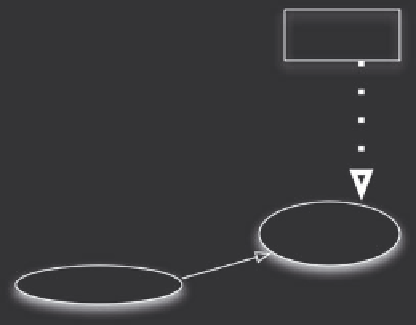Information Technology Reference
In-Depth Information
Table 2.5
Example of Tacit Consent
IF
X
decides to count on
Y
, AND
Y
is aware of such an expectation, AND
X
is aware that
Y
is aware, and
Y
knows this, AND
Y
would be able and in condition of rejecting such a delegation, to refuse to 'help'
X
, and to inform
X
about this (a very relevant information for her), and
Y
knows
that
X
knows this; AND
Y
says nothing; doesn't provide any sign of his refusal
THEN
Y
'tacitly consent':
Y
takes a commitment, a tacit obligation to do as expected, to not disappoint
X
;
AND
X
gets a
soft
right towards
Y
: she is entitled to ask and claim for
Y
's action, and to
complain and protest for his not doing as 'committed'
want you to do as expected also for this very reason: because you have a duty and you know
(recognize) that I want you to do this simply for this reason. So my expectation becomes a true
prescription
(Castelfranchi and Giardini, 2003). This is how common expectations become
social 'conventions' and 'norms'.
In sum, also on the bases of such tacit 'promises' and interpersonal norms, or of those
obligations implicit in the relationship,
X
can feel betrayed by
Y
, since she was trusting
Y
on
such a specific basis.
2.11.3 Super-Trust or Tutorial Trust
There are very extreme forms of trust, where
X
'puts herself in
Y
's hands' in a radical sense;
in the sense that she believes and accepts that
Y
will care about her welfare better than her,
beyond what she intends, asks, desires. One case is
over-trust
:trustin
Y
's
over-help
.Aswe
saw, we might confidently expect that, if needed,
Y
will do more than requested or will even
violate our request in order to realize the adopted goal of ours. However, we can even go
Motivation
Achieving
g
X
Decision to
Trust
Belief
Dependence
Figure 2.14
Dependence Belief and Goal: First step towards the decision of trusting






Search WWH ::

Custom Search